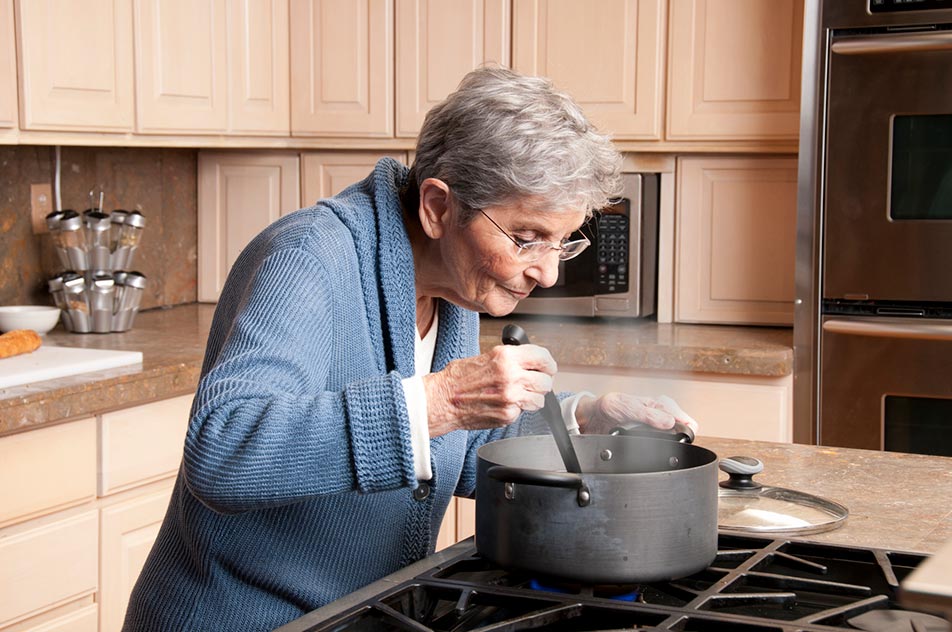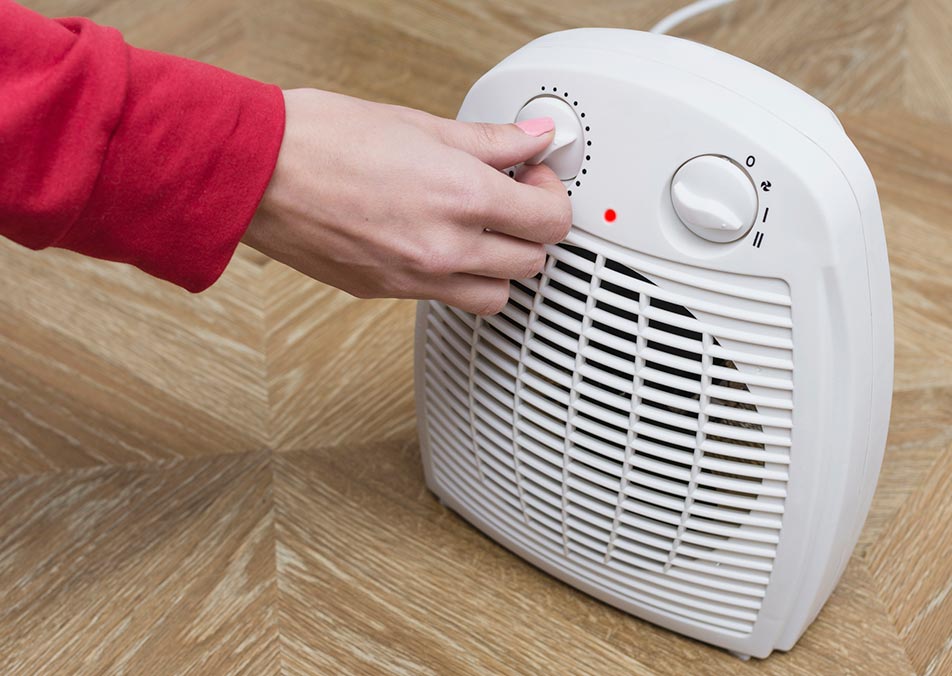
Mike Oberg, EMS training officer, Parkview Health, reminds us that fire is fast. You may have less the 3 minutes to escape. While the flames are dangerous, smoke is deadly, killing more people annually. Here, Mike shares why every home needs fire protection and a plan for escape, and how these precautions need to be addressed with the elderly population.
Smoke alarms save lives
- Have working smoke alarms on every level of your home. Residents should make sure the alarm is loud enough that it will wake them up, if needed. Vibration/strobe smoke alarms are available.
- You should have a smoke alarm inside bedrooms and outside sleeping areas.
- Test by pushing the button on the smoke alarms every month to make sure they are working. Elderly homeowners can test your smoke alarm using a cane or broom handle. If they are unable, be sure caregivers are testing.
- Replace smoke alarms that are more than 10 years old.
Make an escape plan
- Know 2 ways out of every room.
- Have a meeting place outside your home.
- Know how to call 9-1-1 from outside to report a fire.
- Practice your escape plan with everyone who lives in your home at least twice a year.
- Consider your abilities: If you need to use a wheelchair or cane, make sure you can get to them quickly. Keep wheelchair/cane, glasses, or hearing aids next to the bed.
Keep the kitchen safe – Cooking is the No. 1 cause of home fires
- Stay in the kitchen when you are frying, grilling, broiling or boiling food. If you leave the kitchen, turn the burner off.
- Keep things that can burn away from your cooking area.
- Turn pot handles toward the back of the stove so they won’t get bumped.
- Make sure you are awake and alert when cooking. Remember, alcohol and some drugs can make you sleepy.

Handle the hot stuff – Heating is the second leading cause of home fires
- Keep anything that can burn at least three feet away from fireplaces, wood stoves, portable heaters and radiators.
- When you leave a room or go to bed, turn heaters off or unplug them.
- Have your furnace, chimney and chimney connector inspected by a professional each winter.
- Make repairs before cool weather sets in.
- Make sure your portable/space heater has an automatic shut-off switch that turns it off if it tips over. Turn space heaters off when you leave the room.
- Heaters can cause fires if they are too close to furniture, beds, curtains or other materials that can burn. Place them accordingly, with a safe distance between.
- Blow out all candles if you leave the room, get sleepy, or go to bed.
Be smart with electricity
- Extension cords are for temporary use only. Avoid using when possible.
- If you have an electrical cord that is frayed or broken, don’t use it.
- Plug portable heaters directly into the outlet.
- Plug only one heat-producing appliance into the electrical outlet. (Examples: microwave, coffee maker, and portable heater)
Safety for smokers
Remember, medical oxygen can explode if a flame or spark is nearby. Even if the oxygen is turned off, it can still catch on fire.
Ask all smokers to:
- Always smoke outside.
- Use deep, sturdy ashtrays.
- Put cigarettes all the way out — every time.
- Put water on cigarette butts before throwing them in the trash.
- Never smoke in bed or if drowsy.
- Make sure no one smokes around medical oxygen.



